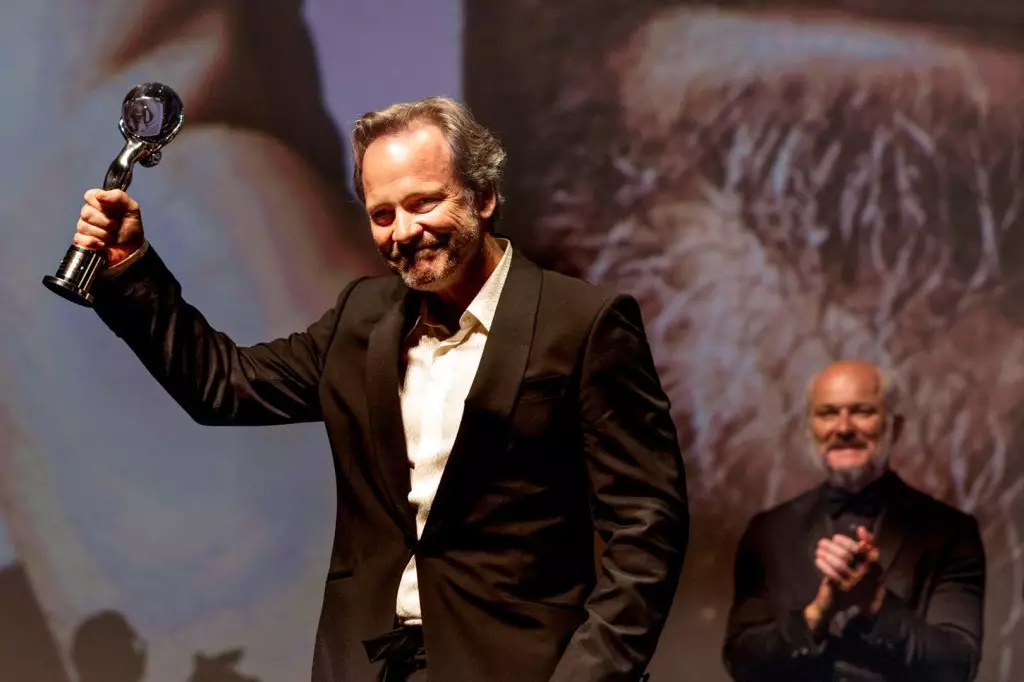The recent passing of Jiří Bartoška, a towering figure in Czech cinema and the long-standing president of the Karlovy Vary International Film Festival, marks a poignant moment for the global film community. His influence extended far beyond his performances; he was an integral architect of the festival’s revival, infusing it with vitality, humor, and an unapologetic celebration of cinematic artistry. Bartoška’s presence was so deeply embedded in the fabric of the festival that his absence was felt as a void, yet his spirit persisted vividly through tributes and reflections. The opening night feature, a documentary titled *We’ve Got to Frame It!*, not only paid homage to his legacy but also encapsulated his profound connection to the transformative power of film.
However, it’s noteworthy that the festival chose a nuanced approach in addressing Bartoška’s legacy this year. Unlike previous years, where the tribute was possibly more overt, this iteration subtly acknowledged his influence. Perhaps this reflects a maturity in the festival’s relationship with its icons—balancing respect with evolving narratives of contemporary cinema. Yet, Bartoška’s role in the festival’s identity remains indelible, symbolizing resilience, dedication, and a deep-rooted love for storytelling. His presence in this year’s trailer, where he co-stars in a reflective homage, underscores the enduring respect he commands within the cinematic community.
The Festival’s Tradition of Playfulness and Cultural Commentary
Karlovy Vary’s reputation is as much about its irreverent spirit as it is about prestige. The festival’s trailers—known for their unconventional humor and self-awareness—continue this tradition with a tongue-in-cheek portrayal of past winners. The 59th edition featured a local favorite, Bolek Polívka, humorously sharing a toast with an empty chair, symbolically raising a glass to Bartoška. Such playful narratives punctuate the festival’s cultural landscape, reminding audiences that cinema is not just high art but also a space for celebration, satire, and community bonding.
Additionally, the festival’s tradition of interpretative dance performances adds another layer of cultural expression that is both mysterious and provocative. This year’s routines, filled with androgynous performers and theatrical lighting, seem to evoke a Lynchian aesthetic—an avant-garde commentary on contemporary anxieties and societal chaos. These performances serve as a reminder that film festivals are cultural microcosms, where visual art, performance, and societal critique intersect. They challenge viewers to find meaning amidst chaos, blending entertainment with profound reflection.
Recognition of Artistic Courage and Personal Stories
The festival’s awards ceremony highlighted the diverse spectrum of contemporary cinema’s voices. Vicky Krieps, accepting her Crystal Globe, exemplified humility alongside heartfelt appreciation. Her candid admission of feeling unprepared—”not good at behaving” and improvising her speech—humanizes the Hollywood star and underscores a universal truth: success often requires resilience and authenticity over perfection. Her tribute extended beyond personal acknowledgment to emphasize cinema’s role as a universal language capable of transcending borders and social barriers.
Krieps eloquently articulated a core belief: that movies are vessels for dreams, empathy, and collective memory. Her perspective reminds us that film remains a powerful tool for fostering understanding and compassion, especially in a world rife with division. Her appeal to preserve cinema’s integrity resonates deeply, emphasizing that art forms like film are more than entertainment— they are essential expressions of hope, love, and forgiveness.
Similarly, Peter Sarsgaard’s speech broadens this conversation to include the importance of collective action in the arts and in societal cohesion. He remarked on the internal divisions within his homeland, America, subtly critiquing the retreat into factions and isolationism. His emphasis on collaboration, support, and unity within the film industry starkly contrasts with the fractured political landscape, suggesting that vulnerability and support are vital ingredients for authentic artistic creation. His invocation of Václav Havel’s words about solidarity emphasizes that shared cultural efforts can stand as a bulwark against societal disintegration.
The Power of Cinema as a Catalyst for Change
What emerges from this festival’s stories and speeches is a fundamental truth: cinema is inherently resilient and transformative. Krieps’ reflection on movies as vessels for dreams and Sarsgaard’s call for collective action reaffirm that art is not a passive indulgence but an active force capable of influencing social perceptions and fostering empathy. Their messages serve as a reminder that in a world increasingly divided by identity, ideology, and geopolitics, films can serve as bridges—creating spaces where understanding can flourish beyond borders and biases.
The festival’s choice to spotlight stories of humility, solidarity, and resilience underscores an optimistic viewpoint: that through unity and shared purpose, cinema can continue to inspire change. Whether through the celebration of legends like Bartoška or through the voices of contemporary artists, Karlovy Vary remains a testament to the enduring power of storytelling to heal, challenge, and unearth the collective human experience.
Ultimately, the festival champions cinema not merely as an art form but as a vital, collective act—one that commands courage, compassion, and a steadfast hope for a more interconnected world.
